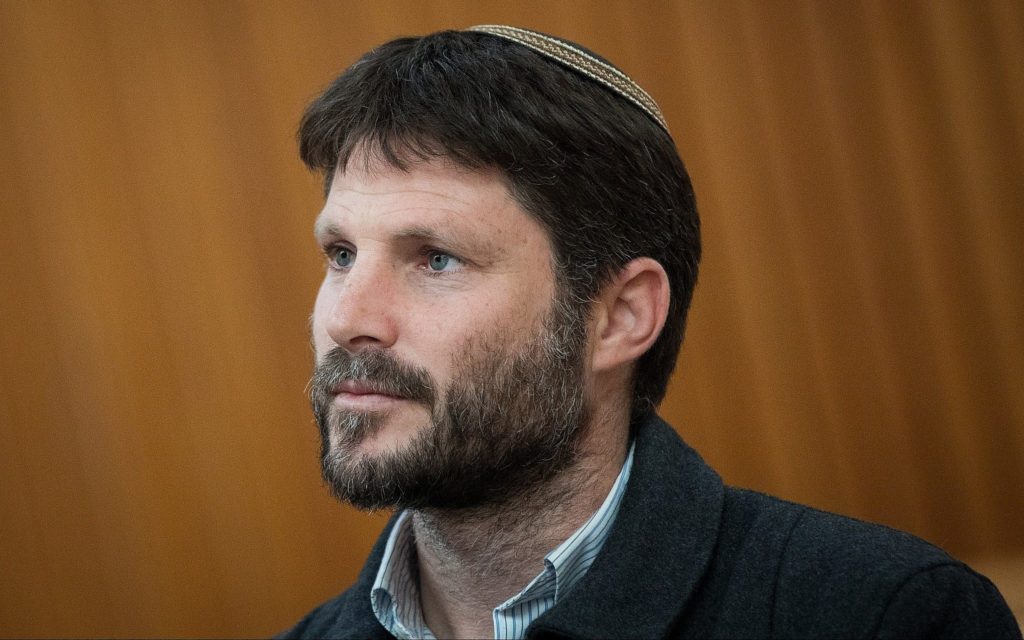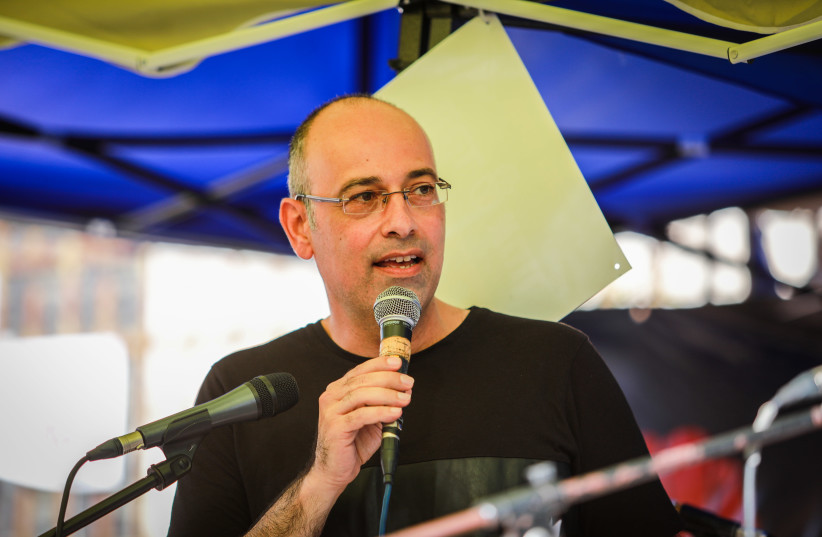Australia/Israel Review
Party Time in Israel
Jan 28, 2021 | Amotz Asa-El

Faced with a fourth election within barely two years on March 23, Israelis expected to be served up the same tiringly familiar set of parties and candidates. But that won’t be the case.
The names and faces that competed in the three inconclusive elections since April 2019 have been joined by no fewer than seven new ones with a viable shot to enter the Knesset.
While Israeli elections have always sparked the establishment of new parties, most were obscure formations headed by anonymous citizens which failed to get elected and never really entered the consciousness of the voting public. New parties that were successful – and there have been quite a few – usually emerged one at a time.
This time around there is a multiplicity of such new political organisations, all headed by well-known public figures.
The most electorally promising of these, Tikva Hadasha (“New Hope”), was launched by former education minister Gideon Sa’ar. Previously representing Likud, Sa’ar was in Prime Minister Binyamin Netanyahu’s inner circle until he fell from grace under circumstances neither man has ever publicly revealed.
Sa’ar’s decision in 2019 to challenge Netanyahu for the leadership in Likud’s primaries – which the latter won by a margin of 72.5% to 27.5% – caused Netanyahu to leave him out of the current ministry. This ostracism in turn contributed to Sa’ar’s decision to break away from Likud and launch a centre-right competitor.
Also on the right, Lt-Gen Moshe “Bogie” Yaalon, a former IDF chief of staff who was Netanyahu’s defence minister from 2013 to 2016, is leading the Telem (“Furrow”) party. In the previous three elections, he had run as part of the Blue and White party. However, when Blue and White leader Benny Gantz made a deal to join a unity government with Netanyahu in April 2020, Yaalon and some of his followers joined the half of Blue and White that refused to join Netanyahu in government.
Also on the right, former transport minister Bezalel Smotrich has left Naftali Bennet’s Yamina (“Rightward”) party in order to field a new “Religious Zionism” party. Its platform is expected to reflect its leader’s blend of messianic hawkishness and religious ultra-conservatism, including a rejection of gay rights.

Meanwhile, on the opposite political flank, Tel Aviv Mayor Ron Huldai has established a party called “The Israelis”. Though 76-years-old, Huldai is both fit and energetic, a well accomplished mayor with 22 years in office, who before that was an air force general and combat pilot who fought in three wars and downed three enemy airplanes.

To his left looms Ofer Shelah, who for the past eight years has been a senior lawmaker for the centrist Yesh Atid (“There is a Future”) party – and also a close friend of the leader of the party, former journalist Yair Lapid (Yesh Atid later became a core constituent of Blue and White). Shelah has now left Yesh Atid to establish Tnufa (“Momentum”), after feeling uncomfortable with his original party’s positions on the Palestinian issue, as well as some religious affairs policies.

In the political centre, economics professor Yaron Zelekha, a former accountant-general of Israel’s Treasury Department who became an anti-corruption crusader, is now fielding Ha-Kalkalit (“The Economic” party), promising an economic agenda mixing capitalism and social compassion.

Lastly, and also in the centre, is Vatikey Yisrael (“Israeli Veterans”), a retirees’ party fielded by 76-year-old Maj-Gen (res.) Danny Yatom, a former head of the Mossad spy agency who later served as a lawmaker for Labor.
Of the seven newcomer parties, Sa’ar’s is clearly the most potent.
An eloquent and cool-headed lawyer, Sa’ar is popular among Likud’s activists, and has already been joined by senior Likud personalities, most notably Ze’ev Elkin, who, until recently, was Netanyahu’s higher-education minister.
A Zionist activist in the former Soviet Union until his immigration in 1990, the 49-year-old Elkin was one of Netanyahu’s closest confidantes, so much that the Prime Minister had Elkin join him in his meeting with Russian President Vladimir Putin in the Kremlin.
Sa’ar’s party has also been joined by Likud’s former housing minister Yifat Shasha-Biton, a 47-year-old with a PhD in education who is a native of Kiryat Shmona, a northern working class town which has historically been a Likud stronghold.
In recent months, Shasha-Biton emerged as a force to reckon with in her capacity as head of the Knesset Coronavirus Committee, a role in which she frequently challenged the Government and forced it to ease some of its emergency measures. Shasha-Biton will run as Sa’ar’s number two.
While Shasha-Biton reinforces his social flank, Sa’ar has similarly bolstered his nationalist credentials by enlisting Danny Dayan, a settler leader and former chairman of the Judea and Samaria Council, who also served as Israel’s Consul General in New York.
Sa’ar has also enlisted Likud lawmakers Michal Shir and Sharren Haskel (who was formerly an Australian resident); Eilat Mayor Isaac Meir Yitzhak Halevi, also originally from Likud; and former communications minister Yoaz Hendel and Knesset Foreign Affairs and Defence Committee Chairman Zvi Hauser, both originally from Blue and White.
Polls suggest Sa’ar will win some 15% of the electorate, about a third of that coming from Likud voters, and the rest drawn from Blue and White supporters.
The second most promising new party is Huldai’s, which is predicted to win around 6%. Joined by the former head of the Histadrut Labor Federation Avi Nissenkorn, until recently justice minister on behalf of Blue and White, the party is expected to primarily attract former voters of the dying Labor Party.
The rest of the new parties are hovering in polls around the electoral threshold, but experience teaches that one or two might emerge as dark horses, garnering a spontaneous protest vote, the way an obscure pensioners’ party won six seats in 2006, and then became part of the government.
In any event, this colourful plethora of political green shoots raises two questions: what does it represent and what will the consequences be?
New parties have rocked Israel’s political system repeatedly since 1965, when David Ben-Gurion himself left his own party and established Rafi in a (frustrated) attempt to replace Labor as the ruling party. Some new parties caused major political upheaval through sudden success, most notably the liberal Dash, whose 15 Knesset seats in 1977 caused Labor’s first-ever loss of power, and Kadima, which won the 2006 election a mere four months after it was established.
However, this election season’s proliferation of new parties, mostly headed by respected and accomplished public figures, is unprecedented. It clearly reflects something larger than just the ambitions of the various political protagonists.
In the narrower, immediate context, it reflects widespread discontent with Netanyahu, a sentiment that all the new parties share, albeit for varied reasons and with differing intensities.
Smotrich, for instance, avoids attacking Netanyahu over his corruption indictments, as does Yamina’s Bennett. Both instead focus on Netanyahu’s performance in the face of the pandemic, which they say was overbearing, improvised, inconsistent, and exorbitant, both socially and financially.
Sa’ar, by contrast, accuses Netanyahu of having prioritised his own personal legal situation over the national interest.
He has been joined in this allegation, in even harsher words, by Netanyahu’s former protégé Elkin. The pair’s attitude means the public attack on Netanyahu’s moral record is spreading from the left and the centre to the mainstream right.
In a broader, historic sense, the proliferation of new parties is symptomatic of a growing vacuum in what was once a bipolar political system. One pole, Labor, Israel’s founding party, has almost completely vanished and is predicted to fail to win any Knesset seats for the first time in history. At the opposite pole, Likud is arguably in the early stages of its own disintegration, a process which may well intensify whenever Netanyahu departs the political scene.
Polling suggests the seven new parties may, collectively, gain the votes of a quarter of the electorate on March 23. When combined with Yesh Atid, established eight years ago, and Yamina, which is 18-months-old, new parties may prove to collectively represent more than half of Israeli society.
Likud remains, for now, alone on top with a predicted 26-28 of the Knesset’s 120 seats according to polls, much more than the next largest parties, Sa’ar’s Tikva Hadasha and Lapid’s Yesh Atid, which are predicted to get 16-20 each.
Yet, of the newer parties, only two – Yamina and Religious Zionism – do not rule out serving in a government led by Netanyahu. It follows that, even with Likud the largest party, gathering a 61-seat governing coalition is looking like an uphill battle for Israel’s longest serving PM.
If indeed he fails to form a government, gone might be not only Netanyahu’s premiership, but also the party system in which his 12-year hegemony over Israeli politics thrived.






